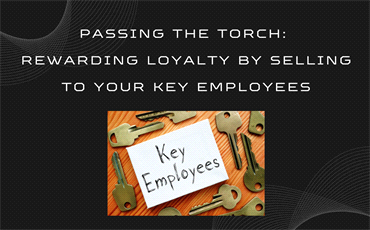How To Finance The Purchase Of A Business
Buying an existing business rather than starting from scratch has several good reasons.
Many entrepreneurs are surprised to learn only about 50% of all startup businesses make it past their 5th birthday. Buying an existing business rather than starting from scratch has several benefits.
Buying an existing business provides Day 1 cash flow, removing the challenge of building a customer base. Furthermore, buying an established business often comes with trained employees, equipment, established vendor relationships and a well-known brand.
Purchasing a business is not without challenges. Financing the purchase may pose a problem to many buyers. What options are available to finance a purchase of a business? Where do you start? Keep reading to find out.
If you have identified a viable business and are looking forward to acquiring it, here are the various ways to finance the purchase.
1. Personal savings
The first and the most accessible source of financing your business purchase is using your own funds. Plus, using your savings eliminates the red tape and complex financing procedures associated with loan applications.
Personal savings are the easiest and cheapest method of financing your business purchase. If you have the money, consult your financial adviser before channeling all of it into a business acquisition. You can also consider borrowing from your family and friends if they're in a position to help you with the purchase.
2. Bank Loan
The most common form of financing is a bank loan.
However, commercial bank loans can be hard to secure. Most financial institutions require substantial collateral, an excellent credit score, and a solid track record of profits. Plus, banks prefer to lend to reputable individuals or companies with a track record of profit and stability.
Established banks offer loans at great rates after taking you through lengthy processes to check if you meet their set qualifications.
One advantage of using bank financing is that you can keep full control of the company you're purchasing. With some funding options, you'll be selling the company stock to investors to get immediate funding, which means you lose total control of the business.
3. Leveraged Buyout(LBO)
A leveraged buyout is typical in larger transactions.
With LBO, the acquired company's assets are used as collateral to secure a loan and pay the acquisition costs.
In principle, the financial arrangement is quite simple. Some of the business's assets are leveraged, such as inventory, property, and equipment, to help finance the acquisition. A leveraged buyout has its fair share of pros and cons. The key advantage of LBO is maximized return and minimum equity financing required.
On the downside, the business is highly leveraged with a high debt load. This gives owners little room to maneuver should they need more funding.
4. SBA Loan
Small Business Administration loans are loans advanced by the US government through the Small Business Administration.
The loan is issued by lenders such as banks with stringent lending requirements but with flexible, low-interest rates. These loans are advanced to individuals who need up to $5 million financing to acquire a business.
Acquiring an SBA loan is easier than a bank loan. These loans usually have competitive rates and favorable terms.
Note that the SBA-backed loans do not finance acquisitions 100% but can finance up to 90% of the value. In some cases, they can cover up to 95% of the acquisition costs. The buyer contributes the remaining funds.
The SBA has set minimum qualification guidelines for these loans. To qualify for an SBA loan, potential borrowers must:
- Have a minimum credit score of at least 650
- Be able to pay a 10% down payment
- Provide three years of tax information
- Provide personal financial information
- Prove they have experience in the target business's industry
However, lenders have the freedom to add to these guidelines as they see fit.
5. Seller Financing
Selling a business is not an easy task.
Finding a buyer with cash to buy the business quickly is also not easy.
Typically, a buyer will struggle to get money to finance the purchase, while the seller will struggle to find a cash buyer.
Seller financing can save the day. With this approach, the seller offers the buyer a loan to cover part of the cost. The buyer makes a downpayment for the purchase, and then the loan from the seller covers the remaining amount and possible interest.
Seller financing is a great way to finance the purchase of a business because it helps complete the purchase without draining personal finances.
Sellers often offer better repayment terms than lenders and can finance up to 60% of the business value.
6. Debt Assumption
You can use debt assumption to finance a portion of a business acquisition.
By assuming the acquired company's debt, the buying company deducts the assumed liabilities from the agreed sales price before issuing payment. The process involves the creditor, the initial debtor, and the new debtor who wishes to assume the debt due.
Two concurrent transactions occur, canceling the original debtor's obligation and creating a new debt contract. The new contract is between the buyer, the assumer, and the creditor.
Conclusion
In today's competitive business landscape, many entrepreneurs prefer to purchase an existing business rather than going through the challenges of starting one from scratch.
Buying an existing business comes with many advantages including Day 1 cash flow, inventory, trained employees, existing vendor relationships and a well known brand.
Many financing options exist that can help you purchase a business. From SBA loans to bank loans, leveraged buyouts, and seller financing, many options exist when it comes to business purchase financing. Your choice of the best financing option will depend on your needs and the loan qualification requirements.
I hope this post will give you valuable insights into how to secure financing to purchase a business.
Contact Us
We will get back to you as soon as possible.
Please try again later.
Recent articles for you
Larry Goldstein of First Choice Business Brokers
License: NV RE S.0188852
Permit: Business Broker Permit BUSB.0007059
Navigation Links
Want to receive new business listing alerts by email?
The World's Authority in Business Sales
© 2023 Larry Goldstein of First Choice Business Brokers | Each office is independently owned and operated. Privacy Policy






